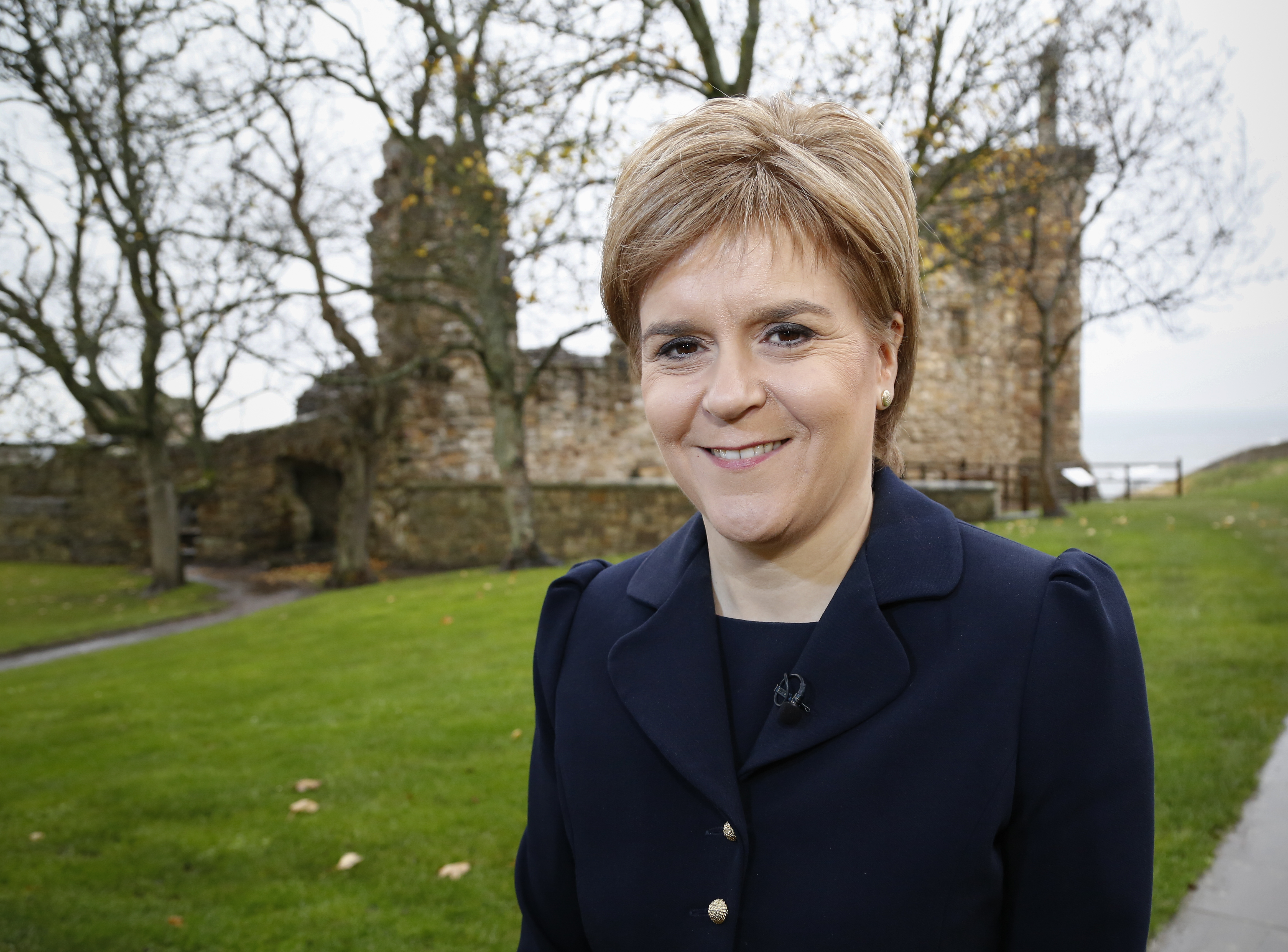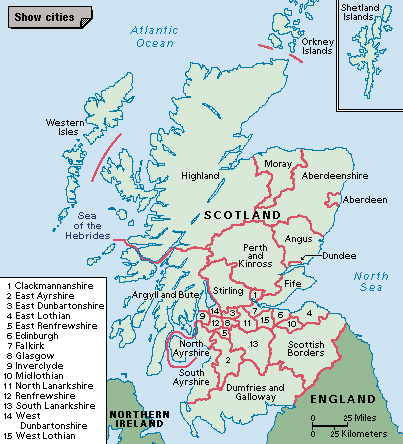Scotland, Government of. Scotland is one of four divisions of the United Kingdom, which is both a parliamentary democracy and a constitutional monarchy. The head of state is the monarch, who reigns but does not govern. Scotland is governed by a cabinet of officials called ministers, chosen by the prime minister from the democratically elected members of Parliament.
Scotland is one of three devolved areas in the United Kingdom—that is, areas controlled by regional governments as well as the central British government. The other two devolved areas are Wales and Northern Ireland. In 1997, the United Kingdom proposed plans for a new Scottish Parliament, and Scottish voters approved the plans. In 1998, the United Kingdom granted Scotland its own government, transferring many powers from the central government to the new government. The Scottish Parliament took up its full legislative powers on July 1, 1999. In 2014, Scottish voters defeated a referendum that would have made Scotland an independent nation.
Parliament and Cabinet.
In the British Cabinet, the secretary of state for Scotland represents Scottish interests on matters under the jurisdiction (legal authority) of the British government. The secretary of state’s office is called the Scotland Office.
Scotland elects 59 of the 650 members of the House of Commons, the lower house of the British Parliament. There are two Scottish committees in the House of Commons. The Scottish Grand Committee, made up of the members of Parliament from Scotland, considers all bills relating to Scottish matters under the jurisdiction of the Parliament. The Scottish Affairs Select Committee, which has 11 members, holds inquiries on spending and administration in the Scotland Office, and British departments that operate in Scotland.
Scottish Parliament.
In addition to representation in the British Parliament, Scotland has its own Parliament in Edinburgh. Unlike the British Parliament, the Scottish Parliament has only one chamber. It has 129 members, known as members of the Scottish Parliament (MSP’s), who serve four-year terms. Seventy-three MSP’s are elected by the first-past-the-post, or simple majority, system. Each voter has one vote, and the candidate with the most votes is the winner, even if he or she does not have an overall majority. The remaining 56 MSP’s are elected by proportional representation, which gives a political party a share of the seats in the legislature in proportion to its share of the total votes cast in an election (see Proportional representation ).
Parliament meets in the Scottish Parliament Building, a modern structure that stands within Edinburgh’s historic Holyrood area. From 1999 to 2004, when the current building opened, Parliament met in General Assembly Hall of the Church of Scotland.
The first minister leads the Scottish government. The first minister is usually the leader of the political party that controls the most seats in the Parliament. He or she appoints the Scottish government, called the Scottish Executive. The Executive includes ministers appointed by the first minister. The Executive also includes two legal officials: the lord advocate, the principal law officer of Scotland and the government’s constitutional and legal adviser on Scottish affairs; and the solicitor general for Scotland, a junior law officer and deputy minister. Junior Scottish ministers are also members of the Executive. 
Devolution.
Although the British Parliament retains its right to make laws for Scotland, the Scottish Parliament now legislates devolved matters (see Devolution ). The Scottish Parliament has the power to raise or lower taxes by up to 3 percentage points. Other devolved matters include education, health, housing, roads, social work, and local government.
Reserved issues are those areas controlled by the British Parliament and government. These matters include nearly all taxation except the powers given to the Scottish Parliament and local government taxation. Social security, international relations, defense, immigration, broadcasting, and abortion are all reserved issues.
The concurrent matters (shared powers between the Scottish government and the British Parliament) include certain areas of the economy. A panel called the Joint Ministerial Conference addresses the concurrent issues. The Joint Ministerial Conference brings together ministers of the British government and the administrations of Northern Ireland, Scotland, and Wales.
Local government.
Local government in Scotland is carried out by 32 council areas. Council areas form a single level of local government directly responsible to the Scottish Executive in Edinburgh. Each council area is supervised by an elected council. As in England and Wales, local government is subject to national law and policy, and has no independent lawmaking power. It is financed by a mixture of council tax (local tax) and national grants. Local taxation is the responsibility of the Scottish Executive and the Scottish Parliament.

